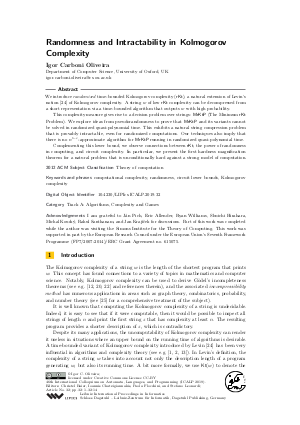LIPIcs.ICALP.2019.32.pdf
- Filesize: 0.51 MB
- 14 pages

 Creative Commons Attribution 3.0 Unported license
Creative Commons Attribution 3.0 Unported license








Feedback for Dagstuhl Publishing